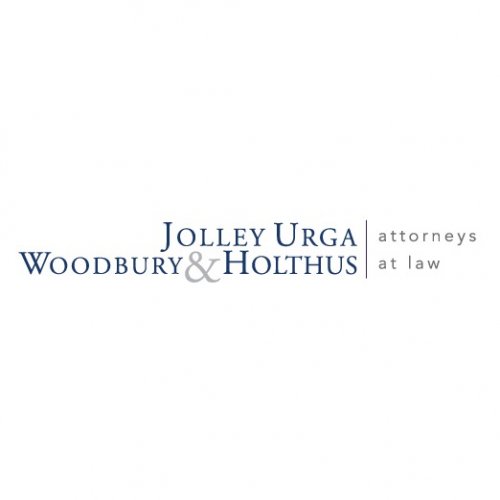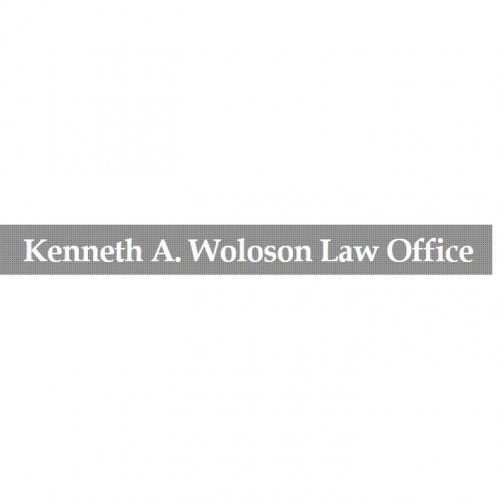Best Conveyancing Lawyers in Nevada
Share your needs with us, get contacted by law firms.
Free. Takes 2 min.
Free Guide to Hiring a Real Estate Lawyer
Or refine your search by selecting a city:
List of the best lawyers in Nevada, United States
About Conveyancing Law in Nevada, United States
Conveyancing is the legal process involved in transferring ownership of real property from one person to another. In Nevada, this process is governed by a combination of state statutes, local regulations, and common law principles. Whether buying or selling residential or commercial property, individuals must comply with Nevada’s requirements to ensure the deed is valid and the transaction is legally binding. The process typically involves due diligence, drafting and reviewing contracts, conducting title searches, obtaining necessary disclosures, and recording the transfer with the appropriate county recorder’s office. Proper conveyancing safeguards both parties’ interests and helps prevent disputes or future legal complications.
Why You May Need a Lawyer
While some conveyancing transactions may appear straightforward, many situations arise where the expertise of a lawyer is crucial. Common reasons for seeking legal help in Nevada include:
- Complex property titles or unresolved liens
- Issues with property boundaries or easements
- Disputes over seller disclosures
- Legal review and negotiation of contracts
- Unusual circumstances such as probate sales or trust transfers
- Foreclosure or short sale transactions
- Ensuring all required documents are properly prepared and filed
- Title insurance concerns or claims
- Commercial property transfers with unique legal requirements
- Protecting your interests in “for sale by owner” or private sales
A lawyer will help you identify and resolve these issues efficiently, minimizing potential risks and costly errors.
Local Laws Overview
Nevada has specific laws and requirements that govern the conveyancing process for both residential and commercial property. Some of the most important local legal aspects include:
- Deeds and Recording: Transfers of real estate are made using written deeds, most commonly grant deeds or quitclaim deeds. Nevada law requires deeds to be signed, notarized, and recorded at the local county recorder’s office to be effective against third parties.
- Disclosure Requirements: Sellers are required to provide buyers with a signed property disclosure statement outlining known material defects. Failing to disclose can result in legal liability.
- Title Search and Insurance: Verification of clear title and purchase of title insurance is routine to protect buyers and lenders from undisclosed claims or defects.
- Transfer Taxes: Nevada imposes a real property transfer tax, typically paid at closing. Rates and exemptions can vary by county.
- HOA Documentation: If the property is in a homeowners association, state law specifies the delivery of association documents, including CC&Rs, budgets, and rules, before closing.
- Escrow Practices: Nevada is an escrow state, which means the parties use a neutral third party to hold funds and documents until all terms of the sale are met.
- Foreclosure Processes: Nevada has distinct procedures for judicial and nonjudicial foreclosures, impacting certain transactions involving distressed properties.
Staying informed about these local legal requirements is vital for a smooth conveyancing transaction.
Frequently Asked Questions
What is conveyancing and why is it important in Nevada?
Conveyancing is the legal process of transferring real estate ownership. It is important because it ensures that the new owner receives clear title and protects both parties from future legal or financial issues related to the transaction.
Do I need a lawyer to handle conveyancing in Nevada?
While not legally required for all transactions, having a lawyer is highly recommended, especially for complex matters or when there are title issues, disputes, or unusual circumstances.
What is the role of escrow in Nevada real estate transactions?
Escrow is a neutral third party that holds funds and documents until all transaction terms are met, providing security for both the buyer and seller throughout the conveyancing process.
What disclosures must sellers provide in Nevada?
Sellers must give buyers a completed disclosure statement covering material facts about the property’s condition, as required by Nevada law. Failure to disclose can lead to legal consequences.
What is title insurance and do I need it?
Title insurance protects buyers and lenders from financial losses due to defects in the property’s title or undisclosed claims. Most lenders require it and buyers are strongly encouraged to obtain it for their own protection.
How is real estate ownership officially transferred in Nevada?
Ownership is transferred through a signed and notarized deed, which must be recorded with the county recorder’s office where the property is located.
What are the typical closing costs in a Nevada conveyancing transaction?
Typical closing costs include escrow fees, title insurance premiums, recording fees, real property transfer tax, and any negotiated repair costs or contract items. These can vary based on transaction size and location.
What happens if there is a dispute after the sale closes?
If post-closing disputes arise, such as non-disclosure or title defects, legal recourse may be available. Consulting a lawyer experienced in Nevada real estate law is crucial for resolution.
How long does the conveyancing process take in Nevada?
The time frame varies but generally ranges from 30 to 60 days, depending on the complexity of the transaction, financing arrangements, and promptness in fulfilling legal requirements.
Can I handle conveyancing myself in Nevada?
While self-representation is allowed, it is recommended to work with professionals such as real estate agents, lawyers, and escrow officers to avoid costly mistakes and ensure the transaction complies with all local laws.
Additional Resources
Individuals seeking further information or assistance with conveyancing in Nevada may consider the following resources:
- Nevada Revised Statutes (NRS), especially Title 10 for Property rights and Title 40 for Actions and Proceedings in Particular Cases concerning real property
- County Recorder’s offices for Clark County, Washoe County, and other localities, for deed recording and property records
- Nevada Real Estate Division, part of the Department of Business and Industry, for licensing and regulatory matters
- State Bar of Nevada’s Lawyer Referral and Information Service for finding qualified real estate attorneys
- Consumer guides from the Nevada Association of Realtors for buyer and seller protection
Next Steps
If you require legal advice or assistance with conveyancing in Nevada, start by gathering all relevant property documents, including purchase agreements, deeds, title reports, and disclosure statements. Consider consulting with a licensed Nevada real estate lawyer, especially if your situation involves any complexities, disputes, or substantial financial transactions. You can contact your local bar association for a referral or search for attorneys who specialize in real estate law. Be sure to ask about their experience with Nevada property law and ensure you feel comfortable with their communication style and approach. Prepare a list of questions about your specific transaction to make the most of your legal consultation and ensure your property transfer is completed smoothly and securely.
Lawzana helps you find the best lawyers and law firms in Nevada through a curated and pre-screened list of qualified legal professionals. Our platform offers rankings and detailed profiles of attorneys and law firms, allowing you to compare based on practice areas, including Conveyancing, experience, and client feedback.
Each profile includes a description of the firm's areas of practice, client reviews, team members and partners, year of establishment, spoken languages, office locations, contact information, social media presence, and any published articles or resources. Most firms on our platform speak English and are experienced in both local and international legal matters.
Get a quote from top-rated law firms in Nevada, United States — quickly, securely, and without unnecessary hassle.
Disclaimer:
The information provided on this page is for general informational purposes only and does not constitute legal advice. While we strive to ensure the accuracy and relevance of the content, legal information may change over time, and interpretations of the law can vary. You should always consult with a qualified legal professional for advice specific to your situation.
We disclaim all liability for actions taken or not taken based on the content of this page. If you believe any information is incorrect or outdated, please contact us, and we will review and update it where appropriate.
Browse conveyancing law firms by city in Nevada
Refine your search by selecting a city.












